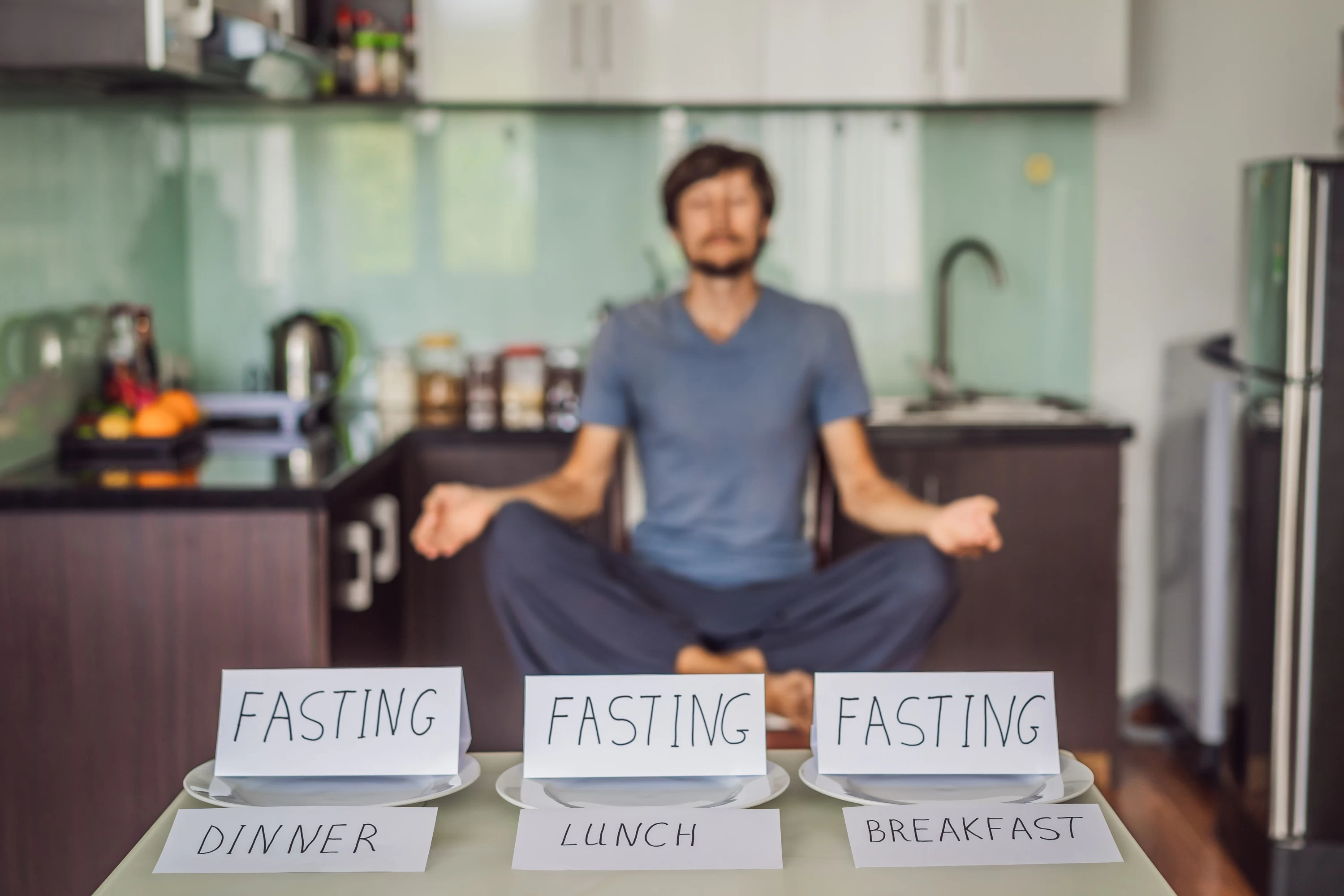
- 15th April 2023
Table of Contents
What is Intermittent Fasting?
Intermittent fasting (IF) is a dieting technique that involves scheduled periods of eating and fasting. It has become increasingly popular due to its potential health benefits such as weight loss, improved insulin sensitivity, and lower inflammation levels. There are different methods of IF, including the 16/8 method (fast for 16 hours and eat during an eight-hour window), the 5:2 method (eat normally for five days and restrict calories to 500-600 on two non-consecutive days), and alternate-day fasting. When it comes to exercise, timing is important when practicing intermittent fasting. Some people prefer to exercise during their eating window while others prefer fasted workouts. If you choose to exercise in a fasted state, it's best to consume some form of carbohydrate or protein after your workout to replenish energy stores. Additionally, it's essential to stay hydrated throughout the day and especially during fasts. Overall, intermittent fasting can be an effective way to lose weight and improve overall health if done correctly. Incorporating exercise into your routine can enhance these benefits by promoting muscle growth, improving cardiovascular health, and boosting metabolism. However, it's crucial to listen to your body's needs and consult with a healthcare professional before starting any new diet or exercise regimen.
Benefits of Combining Intermittent Fasting and Exercise
If you are looking for an effective way to improve your health and fitness, combining intermittent fasting with exercise might be the answer. Intermittent fasting is a dietary approach that involves restricting your eating to specific periods of time, while exercise refers to physical activity that helps burn calories and build muscle. Together, these two practices can offer several benefits. For starters, when you combine intermittent fasting with exercise, it can help boost your metabolism and promote weight loss. By limiting the time period in which you eat, you give your body a chance to burn fat instead of glucose for energy. When combined with regular exercise, this process becomes more efficient as the body starts using stored fat as fuel for workouts. Additionally, intermittent fasting and exercise have also been linked to improved heart health by lowering blood pressure levels and reducing the risk of heart disease. Moreover, they can also contribute to better brain function by increasing levels of a protein called BDNF (brain-derived neurotrophic factor), which promotes neuron growth and protects against neurological diseases such as Alzheimer's. In conclusion, combining intermittent fasting with regular exercise is a proven strategy for improving overall health and fitness. It not only helps in weight loss but also reduces the risk of chronic illnesses like diabetes and heart disease while promoting better brain function at the same time.
Timing Strategies

Timing is a crucial element in maximizing the benefits of intermittent fasting and exercise. Experts suggest that individuals should break their fasts with nutritious meals within an hour after ending their workouts. This helps to replenish glycogen stores, promote muscle protein synthesis, and reduce muscle breakdown. It's also important to time meals before exercising adequately to ensure that the body has enough energy to perform well during workouts. For those who prefer morning workouts, experts recommend breaking your fast with a protein-rich breakfast such as eggs or Greek yogurt. This provides the body with essential amino acids necessary for muscle repair and growth after exercise. If you prefer working out later in the day, it's best to finish eating two hours before hitting the gym to avoid digestive discomfort during exercise. Overall, timing strategies play a vital role in optimizing intermittent fasting and exercise routines for optimal performance results.
Pre-Exercise Considerations
When it comes to exercise, timing is critical, especially when practicing intermittent fasting. Before starting any exercise routine while fasting, you should consider a few factors. First and foremost, it's crucial to listen to your body and pay attention to how you feel during the fast. If exercising makes you feel lightheaded or dizzy, it may not be the right time for physical activity. Additionally, staying hydrated is essential when exercising while fasting. Be sure to drink plenty of water before and after your workout session. If possible, try scheduling your workouts during the feeding window so that you can fuel up with nutrients needed for optimal performance. Lastly, focus on low-intensity exercises like yoga or light cardio if you're just starting out with intermittent fasting and working out at the same time. Gradually increase the intensity level as your body becomes accustomed to this new lifestyle change. By following these considerations before engaging in exercise while intermittently fasting, you'll ensure that both practices complement each other without compromising overall health and wellbeing.
.1.webp)
Post-Exercise Considerations
When it comes to intermittent fasting and exercise, there are a few post-exercise considerations to keep in mind. Firstly, you should aim to refuel your body with the right nutrients within 30 minutes of finishing your workout. This is especially important if you're doing fasted workouts as your glycogen stores will be depleted. Consuming a balanced meal or snack that contains both carbohydrates and protein can help promote muscle recovery and growth. Another factor to consider is hydration. During exercise, you lose fluids through sweat which can lead to dehydration. After exercising, it's essential to replenish these fluids by drinking water or a sports drink. Adequate hydration also plays an important role in regulating body temperature, transporting nutrients throughout the body, and promoting cardiovascular health. Finally, don't forget about rest and recovery. Your body needs time to recover after exercise, so make sure you're giving yourself enough time between workouts for proper rest and recovery. This includes getting enough sleep each night as sleep plays a critical role in muscle repair and growth. By taking care of your body post-workout with nutrient-dense foods, adequate hydration, and proper rest days; you'll set yourself up for success during future workouts while practicing intermittent fasting.
Proper Nutrition for Performance
When it comes to exercise and intermittent fasting, proper nutrition is key for optimal performance. While it may be tempting to indulge in high-calorie, high-carb meals during your eating window, focusing on nutrient-dense foods can help fuel your workouts and support overall health. To maximize performance during a fasted workout, consider consuming a small amount of carbohydrates beforehand. This can provide a quick source of energy without breaking your fast. Additionally, incorporating protein-rich foods into post-workout meals can aid in muscle recovery and growth. It's also important to stay hydrated throughout the day and particularly before and after exercise. This can help prevent fatigue and improve overall athletic performance. Incorporating electrolyte-rich beverages or snacks can further support hydration levels during intense workouts while fasting. By prioritizing proper nutrition and hydration practices, individuals participating in intermittent fasting can optimize their performance outcomes while still enjoying the many benefits of this dietary approach.














